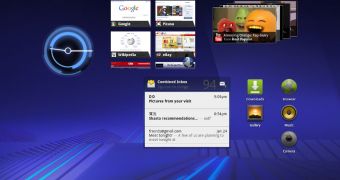Without a doubt, everyone's waiting for Android 3.0 (Honeycomb) in order to see just what an Android OS refined for tablet use can offer (and how well it can fare against iOS), and it seems that the wait will be really worth it, as the most recent preview of the open-source OS reveals.
The new bits and pieces of information have been provided within a blog post by Xavier Ducrohet, Android SDK Tech Lead, who's revealed the fact that his team has just released a preview of the Android 3.0 SDK, with non-final APIs and system image.
Quite naturally, the main purpose of this early release is to enable developers to start testing their existing applications on the tablet form-factor and, more importantly, see what they have to do in order to adapt them for a more streamlined functionality on the tablets that will actually get to run the aforementioned operating system.
As Mr. Ducrohet reveals, the new SDK highlights will include an UI framework for creating apps for larger screen devices, as well as support for enhanced 2D and 3D graphics, via a built-in GL renderer and a new 3D graphics engine called Renderscript.
Additional features offered by the new SDK include support for multicore processor architectures, a host of new multimedia features (including HTTP Live streaming support and a pluggable DRM framework), as well as the required support for new types of connectivity options, including new APIs for Bluetooth A2DP and HSP for audio streaming and headset control.
In fact, according to Mr. Ducrochet, the support for Bluetooth insecure socket connection will also enable various applications connect to simple devices that may not have a user interface, and we all know that there are plenty such accessories available out there.
These are only a few of the novelties provided by Android development team, and if you're curious to find out more, you can take a closer look at these interesting improvements here.
Also, if you want to give the new SDK a try for yourselves, you can get it right here on Softpedia, whether your machine is running Windows, Linux or Mac.

 14 DAY TRIAL //
14 DAY TRIAL //